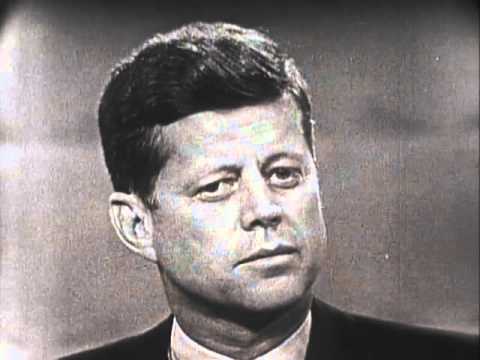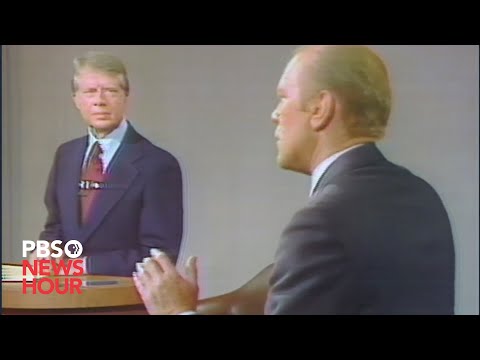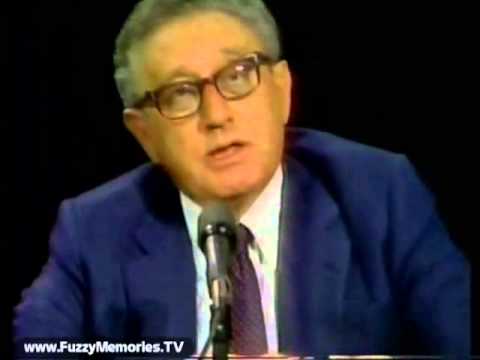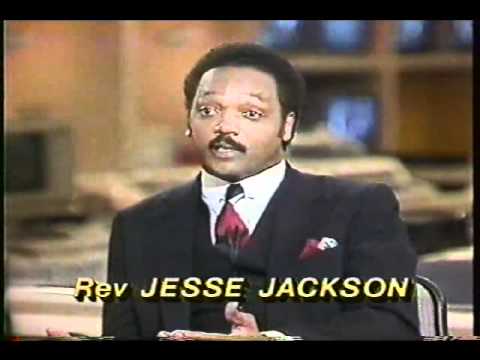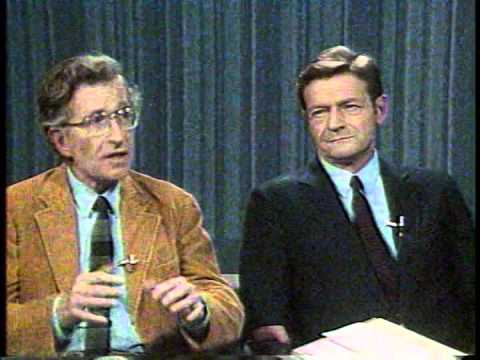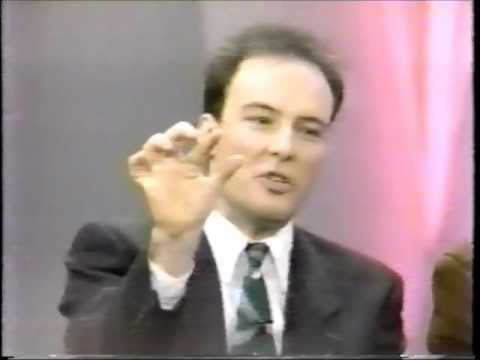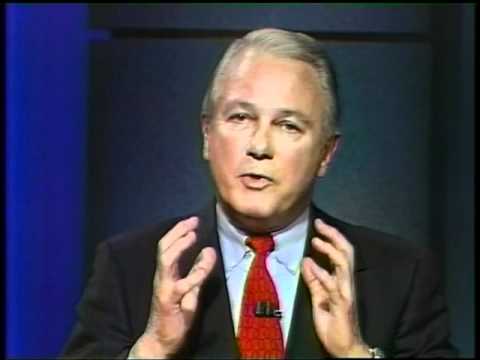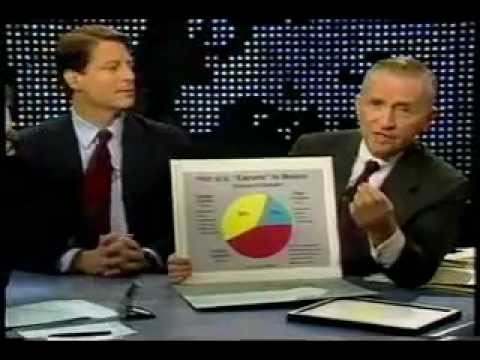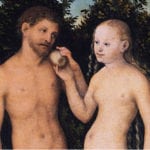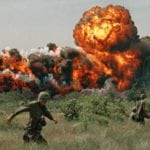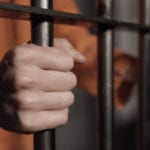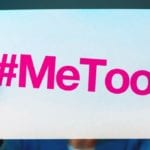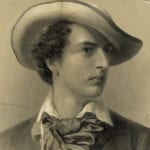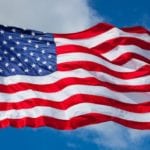10 Kennedy vs. Nixon1960
In 1960, John Kennedy and Richard Nixon met in a CBS studio for the first televised presidential debate in US history, changing the very nature of American politics. Before their meeting, presidential candidates had never met for a face-to-face debate. While bookies initially gave Nixon 9–5 odds to win, Kennedy turned the debate around with a more television-friendly appearance, a strong and aggressive opening, and one cheap but ingenious trick with the thermostat. Kennedy’s team literally turned up the temperature to make Nixon sweat. Watch this video on YouTube According to a reporter for the Chicago Tribune: “[Nixon’s handlers] had expected him to slaughter Kennedy with a few words.” But Kennedy launched with a strong attack: “In the election of 1860, Abraham Lincoln said the question was whether this nation could exist half-slave or half-free. In the election of 1960 and with the world around us, the question is whether the world will exist half-slave or half-free.” Compared to the youthful and energetic appearance of Kennedy, Nixon looked haggard, tired, and unshaven. In future debates, Nixon tried to rally, but the damage was done. Attempts to use makeup left Nixon open to snide attacks, such as those by Kennedy’s running mate, Senator Lyndon Johnson, who accused the Republican candidate of ignoring serious problems affecting the nation. “He covers up the sore spots with a talcum powder makeup of tranquility,” Johnson charged. Despite improved performances for Nixon in later debates, Kennedy would edge out his opponent in a close win, which many credit to the fateful first debate.
9 Baldwin vs. Buckley1965
African-American author James Baldwin and archconservative William F. Buckley Jr. met at Cambridge University in 1965 to debate whether or not “the American dream is at the expense of the American Negro.” Buckley was a long-standing opponent of the civil rights movement, a view he pushed in the influential National Review magazine he founded, while Baldwin was considered the most able public speaker of the black intellectual movement. Baldwin immediately launched into a strong, principled position despite being unfamiliar with the format of collegiate debate. While he harshly criticized the racist American system, he expressed sympathy for whites caught up in it: “The white South African or Mississippi sharecropper or Alabama sheriff has at bottom a system of reality which compels them really to believe when they face the Negro, that this woman, this man, this child must be insane to attack the system to which he owes his entire identity.” Baldwin also laid a trap for Buckley, who seemed to pay scant attention to the bulk of Baldwin’s argument. Buckley immediately launched into denial and a personal attack with this claim: “It is quite impossible in my judgment to deal with the indictments of Mr. Baldwin unless one is prepared to deal with him as a white man, unless one is prepared to say to him that the fact that your skin is black is utterly irrelevant to the arguments you raise.” In the end, the almost entirely white student body awarded the victory to Baldwin, 544 to 164.
8 Buckley vs. Vidal1968
Many see the 1968 debate between leftist author Gore Vidal and firebrand William F. Buckley Jr. as the moment in which American political debate became inflamed with passion and bloody rhetoric. Against a background of serious political and social unrest, 10 debates took place during the Republican and Democratic National Conventions. But it was the ninth debate in Chicago that was the brashest spectacle on American political television up to that point. Vidal and Buckley made no bones about their dislike for one another. Vidal tried to get Buckley’s goat by claiming that Buckley was the inspiration for the transgender protagonist Myra Breckinridge. Meanwhile, Buckley mocked Vidal’s failed screenplays and produced a note from Robert F. Kennedy suggesting that Vidal be sent to Vietnam. Things became especially heated when the subject turned to police brutality toward protesters, whom Buckley argued had brought problems on themselves by chanting obscenities and pro-Vietcong slogans. Moderator Howard K. Smith asked Vidal, “Wasn’t it a provocative act to try to raise the Vietcong flag in the park in the film we just saw? Wouldn’t that invite . . . raising a Nazi flag in World War II [which] would have had similar consequences?” Vidal replied that while he supported the American right to protest, the Vietcong had the right to organize their country as they saw fit. Buckley countered that many Americans were pro-Nazi before and during World War II and were rightly condemned for their stance. Vidal coolly interjected, “As far as I’m concerned, the only pro- or crypto-Nazi I can think of is yourself.” Seething, Buckley rose to his feet and spat, “Now listen, you queer, stop calling me a crypto-Nazi or I’ll sock you in the goddamn face, and you’ll stay plastered.” Later, Buckley regretted losing his temper because he had played directly into Vidal’s hands. While the debate was shocking at the time, it was also highly entertaining and helped to cement political debate as a viable form of television entertainment.
7 Carter vs. Ford1976
After the fateful meeting between Kennedy and Nixon, it would be another 16 years until the next presidential debate. Although televised debates had become standard practice in other political races, FCC guidelines made presidential debates impractical because television stations were required to give equal time to all presidential candidates, not just those from the major parties. In 1975, this changed when the FCC ruled that live debates without sponsorship by a broadcaster were legitimate news events and could be carried by television stations without giving equal time to minor candidates. This allowed presidential debates to become standard practice, setting the stage for the 1976 meeting between incumbent Republican President Gerald Ford and Democratic challenger Jimmy Carter. The debate was dull and filled with gaffes and technical difficulties. As Carter spoke about the post-Watergate decline in trust in the American government, the mics of both candidates were suddenly cut off. However, Carter continued speaking for some time before realizing it. Then, for the next 27 minutes, the two candidates stood like statues at their podiums until the audio was restored. Acutely aware of Richard Nixon’s sweaty mistake, neither candidate wanted to appear nervous or upset by the issue. In truth, they both looked absurd and uncomfortable. When the debate resumed, Jimmy Carter was asked about his willingness to give an interview to Playboy magazine considering his strong Christian background. He handled the question calmly, pointing out that many other political figures had done such interviews. However, he admitted that he shouldn’t have done it. To moderator Max Frankel’s bemusement, Ford was less masterful with his gaffe when he denied that there was Soviet domination in Eastern Europe. The strange statement reduced Ford’s credibility on foreign policy and contributed to his losing the election. With neither candidate particularly comfortable in the medium, the 1976 presidential debate was an awkward affair, in stark contrast to the well-oiled political machine dedicated to handling modern debates.
6 The Day After Discussion Panel1983
In 1983, the ABC TV movie The Day After explored the effects of a nuclear war on the US. It was a tense year in Cold War politics with several close calls, a diplomatic crisis, a missile deployment, and the rise of political leaders Ronald Reagan and Mikhail Gorbachev. Following the TV movie’s broadcast, the ABC News program Viewpoint explored the real-world issues associated with the movie. The guests were an assortment of experts on the issue, including former Secretary of State Henry Kissinger, Nobel Peace Prize winner Elie Wiesel, our old friend William F. Buckley Jr., esteemed scientist Carl Sagan, former National Security Adviser Brent Scowcroft, and former Secretary of Defense Robert McNamara. There was also a brief interview with George Shultz, then-Secretary of State for President Reagan. Many of these men had very different ideas regarding nuclear weapons and their potential use in the Cold War. Sagan emphasized that nuclear war had the terrifying potential to wipe out all life on Earth, a scenario even worse than that portrayed in the film. Some panel members, particularly Buckley, criticized the film as a biased political piece that sought to promote a certain point of view. Each of the men addressed the topic from different angles, making the panel an interesting overview of different schools of thought about the possibility of nuclear apocalypse.
5 Jackson vs. Falwell1985
In 1985, the Reverend Jerry Falwell and the Reverend Jesse Jackson met on ABC’s Nightline to debate the issue of South African apartheid and related American policies. Having recently visited South Africa, Falwell was an opponent of economic sanctions on the nation and wanted “millions of Christians to buy Krugerrands.” In contrast, Jackson was an outspoken critic of South African apartheid and an outspoken supporter of sanctions. While both men opposed the regime, they had different ideas about how the US should treat South Africa. Falwell argued that while the apartheid system was bad, it was important for American national security and the fight against communism to maintain economic relations with South Africa. He claimed that economic sanctions would hurt South African blacks more than whites. Jackson said that the South African government was basically a fascist state, while the apartheid system was “ungodly and immoral [and also] antidemocratic and anti–free enterprise.” Although the two men had initially promised to refrain from personal attacks, they were unable to resist as the debate became heated. Jackson said, “It is interesting that Mr. Falwell has finally found a minority he can support. He cannot very well support minorities in this country. Falwell, you supported apartheid in Southern America until it was over. Now you’re supporting apartheid in Southern Africa while it’s still alive.” Falwell claimed that God had saved him from racism but said, “I’m sorry that Reverend Jackson still thinks whites are bad people.” Falwell accused the then-jailed Nelson Mandela of harboring communist sympathies, which led Jackson to retort that Falwell had once said the same thing about Martin Luther King Jr. Off camera, ABC TV received a death threat against Falwell, which led to the reverend and his entourage leaving by the underground basement rather than a limousine waiting on the street outside.
4 Chomsky vs. Silber1986
In 1986, linguist and political philosopher Noam Chomsky and Boston University President John Silber met to debate American involvement in Nicaragua during the so-called “Iran-Contra” period. Right-winger Silber had been on the Kissinger commission that first identified the national security issue of revolutionary movements in Central America. Chomsky maintained a liberal position that US intervention in Central America symbolized the moral failure of Western attempts to control and dominate the Third World. According to Silber, the operation of the Sandinistas in Nicaragua was a national security threat to the US because the Sandinistas were supported and armed by the Soviet Union. He also argued that atrocities occurring in Nicaragua were largely due to Sandinista massacres of the Miskito. Silber believed that this threat could be neutralized without endangering Americans by supporting the right-wing Contras. “All we have to do is help pay for the firemen,” Silber said. “There is a fire going on down there. We don’t have to put the fire out. But we’re asked to pay for the firemen. If we wait, if we decide to do nothing until the Soviets establish a land base there and it develops, as it will develop if we allow it to happen, we will then have to face the fact of a possibility of war. It is not a present threat, it is a vector.” Chomsky saw the Contras as a violent group operating from bases outside the country. He believed that they were responsible for the torture and murder of ordinary Nicaraguans and lacked the support of the more democratic countries in Latin America. Although he admitted that the Sandinistas weren’t perfect democrats, Chomsky said that “the World Bank, OXFAM, the Jesuit Order, and others [recognize that the Sandinistas were using] the meager resources of that country for the benefit of the poor majority. That’s why health standards shot up. That’s why literacy shot up. That’s why agrarian reform proceeded, the only place in the region. That’s why subsistence agriculture improved and consumption of food increased and that’s why we attacked them. It had nothing to do with democracy.” The debate was an interesting example of Cold War logic as both participants claimed to represent liberal democratic values while supporting authoritarian regimes, one left-leaning and one right-leaning. There were a fair number of personal attacks and vicious exchanges, the sort of partisan conflict in the media that allowed the Reagan administration to weather the major constitutional scandal caused by the Iran-Contra affair.
3 Biafra vs. Gore1990
In 1990, former Dead Kennedys lead singer Jello Biafra appeared with social activist Tipper Gore to debate the morality of musical lyrics and Gore’s organization, the Parents’ Music Resource Center (PMRC). They were joined by Rabbi Abraham Cooper, Juan Williams, Ice-T, and Nelson George. But it was Biafra and Gore who were the real titans in the conflict. In the 1980s, the PMRC had been campaigning against what it perceived as the negative social influence of rock, rap, and other popular forms of music on the nation’s youth. Biafra had been directly affected by the activity of the PMRC when he was accused of distributing obscene materials by including a print called Penis Landscape by acclaimed Swiss surrealist painter H.R. Giger with the Dead Kennedys’ album Frankenchrist. Biafra accused Gore of being behind the charges against him and his band, referencing a newspaper interview where Gore reportedly said, “I’d like to take credit for it.” Gore, however, denied this and claimed she was misquoted. During the debate, Biafra supported free speech while intimating that the forces behind the PMRC were proponents of an archconservative religious right agenda. Gore denied these accusations, saying that she was a liberal Democrat who truly believed that music with graphical content was having a detrimental effect on US children. She also claimed that her organization had a productive relationship with both the police and pediatricians while promoting clear labeling that allowed parents to make informed choices about their children’s music. The debate is an interesting record of the cultures wars as they existed in the early 1990s, though both Gore and Biafra soon vanished from the scene. Explicit warning stickers were later celebrated as symbols in hip-hop lyrics, although the eventual rise of online downloads made the whole thing somewhat irrelevant.
2 Duke vs. Edwards1991
Self-avowed bigot and former Ku Klux Klan leader David Duke was an embarrassment for the Republican Party in his position in the Louisiana House of Representatives. Receiving nearly 500,000 votes in the 1991 Louisiana gubernatorial primary, he referred to himself as the “Republican candidate” even though the party leadership wanted little to do with him. President George H.W. Bush called him a charlatan and a neo-Nazi with no right to hold any position on the national stage. Still, Duke had his supporters and was allowed to debate with Edwin W. Edwards, who had served three terms as Louisiana governor from 1971 to 1987. Despite being a Democrat, Edwards enjoyed the support of the Republicans and the business community over the odious Duke. When Duke and Edwards met to debate in a Baton Rouge hotel room, they were advised by the moderator to avoid discussing each other’s personal backgrounds. Duke hammered Edwards with accusations of corruption and nepotism, implying that Edwards had sold state jobs and even pardons during his former administration. Edwards said the election of Duke would be a disastrous economic decision that would scare off business, ultimately costing Louisiana 45,000 jobs and $1.8 billion in economic recovery. The debate helped Edwards to attract the support of those who preferred Republican Governor Buddy Roemer, who had been shut out after finishing third in the primary. Edwards went on to crush Duke in the election, winning 61 percent of the vote. In the aftermath, Duke claimed he had won a “moral victory” because he had received the majority of white votes. Some have argued that Duke’s supposed success resulted from the breakdown of the plain plurality voting and runoff systems. Roemer would likely have beaten both Edwards and Duke if he had been in the race.
1 Gore vs. Perot1994
On November 9, 1993, Vice President Al Gore and somewhat loopy billionaire businessman Ross Perot met on Larry King Live to debate the merits of the proposed North American Free Trade Agreement (NAFTA), which would eliminate trade barriers between the US, Canada, and Mexico. It was a significant debate on a controversial issue, and 16 million people tuned in to watch. There was no studio audience, and neither participant was allowed any support from staffers during the debate. Gore trounced Perot with his measured, rational demeanor while Perot appeared impatient, disrespectful, and ill-tempered. Time magazine described the conflict like this: “A calm, suave Gore literally towered over a snide and snarling Perot.” When Perot claimed that free trade would undermine the economy and cause a loss of jobs, Gore dismissed it as standard Perot negativism, bringing up Perot’s earlier predictions that 40,000 Americans would die in the Gulf War and 100 banks would close if the Democrats won the election. The Atlantic‘s James Fallows described the clever way that Gore outmaneuvered Perot: “There was genius, or at least cunning, in the decision to prepare Gore to push Perot’s flaw to the breaking point—to stake the debate on Gore’s ability to make Perot lose his temper. [ . . . ] Their starting point was that Perot was like an overbearing grandfather. [ . . . ] Perot, a graduate of the Naval Academy, was extremely proud of his image as a self-sacrificing patriot. Several aides reasoned that if Gore could find a way to gibe at or raise doubts about that reputation, Perot would be unable to contain himself. Perot had virtually no experience with being treated disrespectfully.” In the aftermath of the debate, support for NAFTA surged from 34 percent to 57 percent. Perot’s credibility and political ambitions were dashed as he was unable to back up his claims with solid information. David Tormsen isn’t American but considers US politics his favorite form of organized sport. Email him at [email protected].
